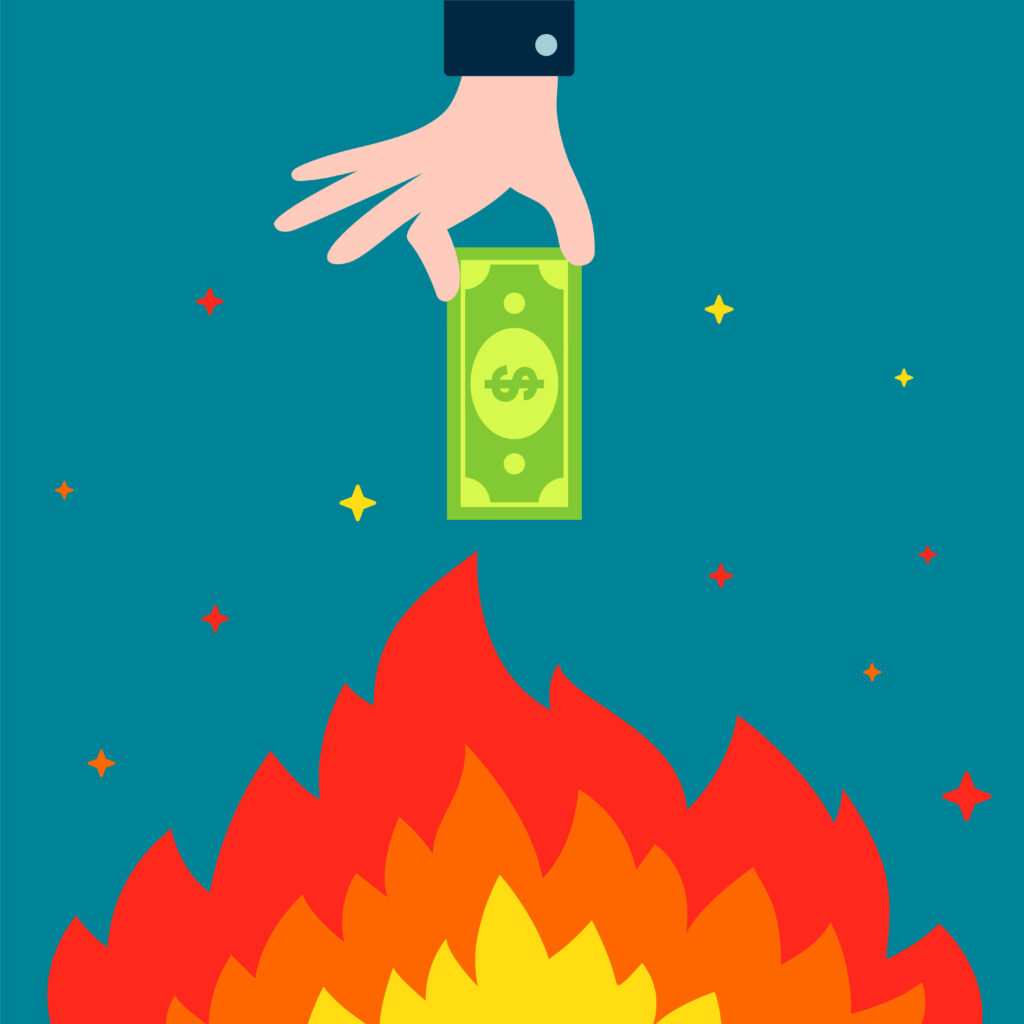During times when people are unemployed or underemployed, they often rely on credit cards to cover their basic expenses. Unfortunately, the high-interest rates and accruing balances can compound financial difficulties. While many people avoid credit cards at these times, there are ways you can use them to your advantage. Here are 3 smart ways to use a credit card when you’re unemployed.
The Financial Struggles of the Unemployed
If you have never been unemployed, consider yourself among the fortunate few. However, the rest of us already have or will face unemployment at some point in our careers. There are several reasons why this happens, many of which are beyond your control.
Whatever the circumstances leading up to unemployment, it’s important to carefully manage your expenses during this time. Even if you have an emergency fund or savings, you can quickly blow through money. And with the current inflation rate and increases in the cost of living, it is even more difficult to stretch your financial resources.
It’s easy to become overwhelmed as expenses pile up and you worry about paying your bills, accruing debt, and keeping food on the table. And the longer it takes to find steady income, the worse it becomes. In addition to the job search, I found myself constantly scrapping to find temporary work or bring in income through side gigs. Not having a safety net or health insurance added another layer of pressure to an already difficult situation.
5 Smart Ways to Use a Credit Card When You’re Unemployed
When there are no other options, many people turn to credit cards to help them through hard times. However, this can be both a blessing and a curse depending on how responsible you are with your finances. While you should do everything possible from accumulating more debt, here are 5 smart ways to use a credit card when you’re unemployed.
1. Take advantage of introductory offers with 0% APR.
Many credit cards entice new customers with introductory offers for 0% APR. Although some only offer it for a few months, others extend the rate for 18 months or more. Taking advantage of these offers can provide a grace period that allows you to pay your bills without the added interest fees.
But, it won’t last forever. When the offer ends, the high interest rates will kick in. It could be more damaging if you can’t pay off the balance before the offer period ends. Therefore, you should only use it as a backup emergency fund and be cautious with your spending so you don’t end up with a mountain of credit card debt.
2. Look for balance transfer offers to save you money.
In addition to the introductory offer, some credit cards also include the added benefit of no balance transfer fees. This feature allows you to save on interest fees if you transfer your credit card debt to the new account.
If you’re smart and stay ahead of the expiration dates, you can transfer the balance again before the offer expires. However, this can be a risky game if you don’t get approval or can’t transfer the entire balance. When this happens, it will leave you paying off the rest at the fixed rate.
3. Choose one with a lower interest rate.
Unfortunately, you may have no other option but to use a credit card to pay your bills. However, the one you choose can make a big difference in your finances.
Take time to review the terms of your current credit cards. Compare the interest rates, credit limits, and fees. You can save a significant amount when you utilize ones that have lower fees. Reading the fine print and choosing the best credit for you can reduce how much debt you accrue when you don’t have a steady income.
4. Set spending limits or use prepaid credit cards.
Those who have trouble controlling their spending may need to take more drastic measures to protect themselves. If you find it impossible to resist the temptation to swipe your card for every expense, then you should consider putting a spending limit on your account.
Another alternative is to use a prepaid credit card. If you are living on a strict budget, you can load money onto the card at the beginning of the month and use it to pay for your expenses. However, once you reach a zero balance, you won’t be able to use the card until you reload it.
Both options will prevent you from accruing more debt and help you stick to your budget.
5. Redeem your rewards.
Many credit cards offer rewards programs that will earn you cashback or points on every dollar you spend. While this isn’t an excuse to rack up more charges, you may already have some rewards available to redeem.
Each card operates within a different structure. Each one has its own terms for how to use and redeem your rewards. If you go with the cashback option, they may send you a check or offer a statement credit. Others allow you to redeem your points for gift cards and other travel perks. So if you have been saving your rewards for a rainy day, this would be a great time to use those rewards to reduce your expenses.
The Hard Truth About Debt
While everyone hopes to stay debt-free, it isn’t always an option. At times, debt is inevitable, especially when you are between jobs. However, credit cards should be a last resort to help cover the essentials until you start earning a steady income again.
It’s best to consider all your options before turning to credit cards for all your expenses. And if you are using them, you need to make sure you are at least making the minimum payments. Otherwise, it could affect your credit score, put your account into default, or force you to deal with collection agencies.
If you must use a credit card when you’re unemployed, contact your lenders to inform them of the change in your job status. They will be more willing to work with you if they have advance notice of late payments. It’s also possible that they may lower or defer payments as well as waive penalties. Many credit card companies also have payment programs during periods of hardship. Although people hesitate to make the call, it may surprise you to learn how understanding and helpful they are when dealing with financial difficulties.
Read More
- How to Choose a Credit Card
- Surviving Unemployment: How To Live Without An Income (Temporarily)
- Why Loan-to-Net-Worth Ratio Matters to Creditors
- Loans for Stay-at-Home Moms – What Are Your Options?
- What Happens to Unused Cashback Accounts?
Jenny Smedra is an avid world traveler, ESL teacher, former archaeologist, and freelance writer. Choosing a life abroad had strengthened her commitment to finding ways to bring people together across language and cultural barriers. While most of her time is dedicated to either working with children, she also enjoys good friends, good food, and new adventures.



